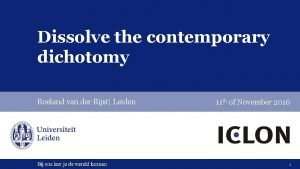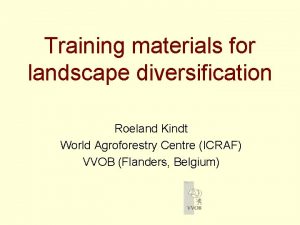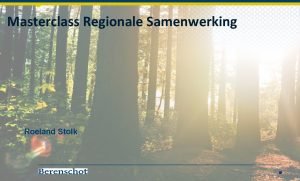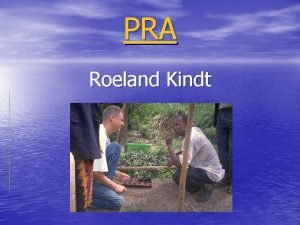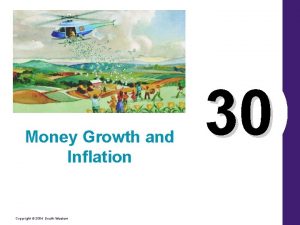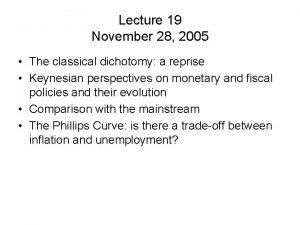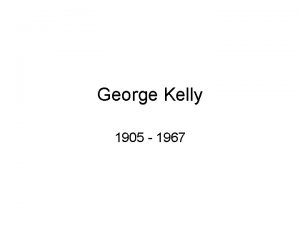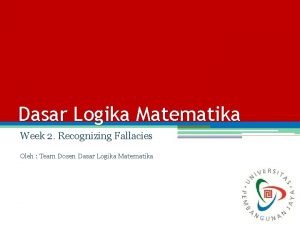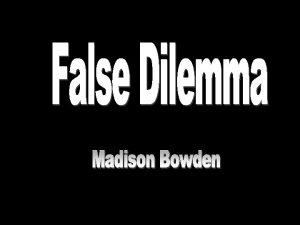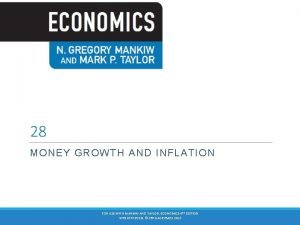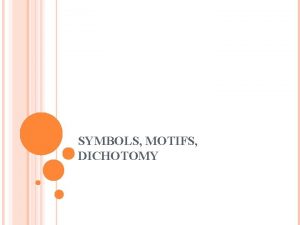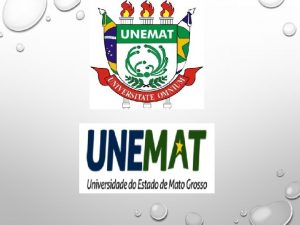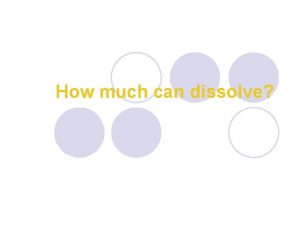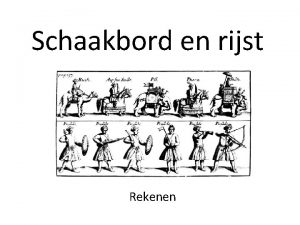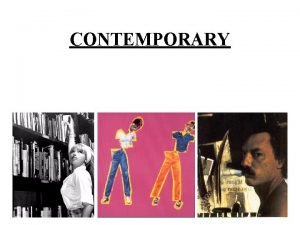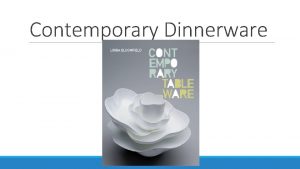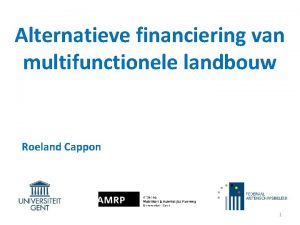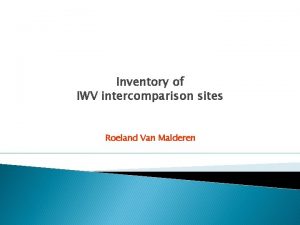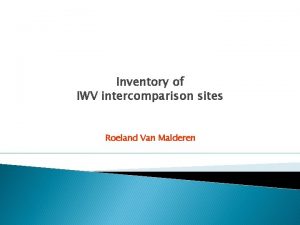Dissolve the contemporary dichotomy Roeland van der Rijst










- Slides: 10

Dissolve the contemporary dichotomy Roeland van der Rijst| Leiden 11 th of November 2016 1

Aim of presentation • Based on a literature study about research-based learning internationally • My message in this presentation: “Dissolve the dichotomy within academe: We are all part of the academic community. ” 2

What do we mean by …? “A cluster of student-centered approaches to learning and teaching that are driven by inquiry or research. ” (Miner et al. , 2010) “A cluster of student-centered approaches to teaching in which students learn by engaging in thinking processes and activities of scientists. ” (Furtak et al. , 2012) 3

Benifits for students Student outcomes • Enhanced knowledge and understanding • Improved skills • Matured dispositions Student experiences • Efficacy and competence • Feeling of autonomy • Engagement and relatedness “Provide students with transformative epistemological experience” • How does knowledge come into existence? • How do we know this is true? 4

Institutional change Programmatic issues • Curriculum design • Communities of practice Institutional issues • Academic identity • Institutional policies “Overall research-teaching links do not come about naturally in our HEI. ” • Disconnection • Conflict • Competition 5

Take-home message Real change only when we are aware we that keep the dichotomy alive. In our: • Buildings • Institutes • Curricula • Terminology • Thinking 6

Dissolve the dichotomies We need to: • Acknowledge we belong to one community • Note we all feel a ‘love for knowledge’ • Understand that the heart of academe centers around ‘episteme’ Academics, students and staff alike, all: - Want to know - Want to understand - Want to criticize - Want to innovate - Want to achieve - Want to share (Van der Rijst, 2009) 7

Start rebuilding our academy Ways to engage novices in academic work: • Teach research results • Make research known • Show what it means to be a researcher • Help to conduct research • Provide research experiences (Visser-Wijnveen et al. , 2010) How to build expertise in academic work? • Deliberate practice • Reflection on action • Just-in-time feedback 8

Potential ways forwards • Use an apprenticeship model • Professors guide Ph. D’s; • Ph. D’s guide graduates; • Graduates guide undergraduates; • Undergraduates guide freshmen • Renegotiate the role of undergraduates and graduates in research grant proposals • Renegotiate the role of graduates and undergraduates in research groups • Reconsider your studies; “how can undergraduates and graduates assist you? ” • Re-evaluate the academic development opportunities (for all scholarly roles) at your institute 9

References Furtak, E. M. , Seidel, T. , Iverson, H. , & Briggs, D. C. (2012). Teaching : A meta-analysis experimental and quasi-experimental studies of inquiry-based science. Review of Educational Research, 82, 300 -329. Minner, D. D. , Levy, A. J. , & Century, J. (2010). Inquiry-based science instruction—what is it and does it matter? Results from a research synthesis years 1984 to 2002. Journal of Research in Science Teaching, 474– 496. van der Rijst, R. M. (2009). The research-teaching nexus in the sciences: Scientific research dispositions and teaching practice. Academic dissertation. Leiden: Leiden University. van der Rijst, R. M. (in press). The transformative nature of research-based education: A thematic overview of the literature. In E. Bastiaens, J. van Tilburg & J. van Merriënboer, Research based learning: Case studies from Maastricht University. Series Professional Learning and Development in Schools and Higher Education. Dordrecht: Springer. Visser-Wijnveen, G. J. , van Driel, J. H. , van der Rijst, R. M. , Verloop, N. , & Visser, A. (2010). The ideal research-teaching nexus in the eyes of academics: Building profiles. Higher Education Research & Development, 29, 195 -210. 10
